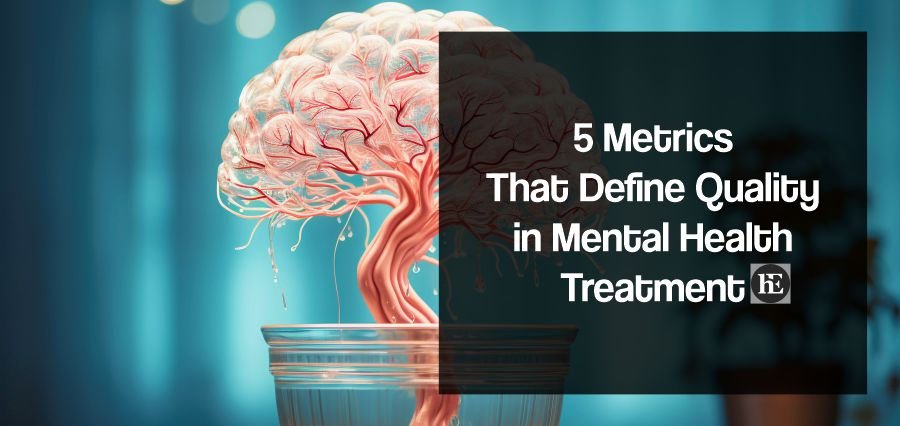The Function of Pharmacogenomics in Personalizing Drug Treatments for Enhanced Effectiveness
Pharmacogenomics is a fast-growing field that lies at the crossroads of pharmacology and genomics that seeks to learn how an individual’s genetic composition affects his or her response to drugs. Personalized medicine, as it promises to do, has the potential to change the way physicians prescribe medication, ensuring that drugs work better and that side effects are minimized. By taking into account a patient’s individual genetic makeup, pharmacogenomics has the potential to tailor drug therapy for maximum efficacy and safety, leading to a new age of precision medicine.
What is Pharmacogenomics?
Fundamentally, pharmacogenomics is the investigation of the ways in which genetic variation among individuals affects how they respond to medications. The discipline borrows from genomics, which researches an individual’s DNA sequence, and pharmacology, which examines how medicines interact with the body. Genes can influence the way that the body processes, absorbs, and eliminates medicines, as well as how medications interact with their target in the body.
For example, differences in genes that code for drug-metabolizing enzymes may lead to an individual metabolizing a drug too rapidly or slowly, which reduces its efficacy or enhances the likelihood of toxicity. Through these genetic variations, physicians can make more effective choices while prescribing drugs to patients, who are likely to respond and unlikely to be harmed by them.
The Science Behind Pharmacogenomics
Our bodies depend on certain enzymes to metabolize drugs. These enzymes are coded by genes that differ from one individual to another. For instance, the cytochrome P450 (CYP450) family of enzymes is charged with metabolizing most common drugs. CYP450 gene variations can result in individuals metabolizing a drug too rapidly, creating subtherapeutic drug levels, or metabolizing the drug too slowly, which can result in the drug’s accumulation in the body and causing dangerous side effects.
Through the identification of genetic differences in such enzymes, pharmacogenomics enables clinicians to anticipate a patient’s response to a specific medicine, thus helping them choose the best medicine and dose. This lessens the trial-and-error method commonly employed in prescribing treatment and increases the chances of getting the needed treatment effect.
Personalized Medicine: Tailoring Treatment Plans
One of the most important benefits of pharmacogenomics is that it can make personalized medicine a possibility. Conventional medicine tends to use a “one-size-fits-all” system for prescribing medications, but sometimes this is not effective for every patient. Genetic variations, as well as other variables like age, lifestyle, and general health, will affect how well a patient responds to a medication.
Pharmacogenomic screening assists in identifying the most appropriate medications to use based on an individual’s genetic makeup. This can be especially useful in the treatment of long-term illnesses like cancer, cardiovascular disease, and mental illnesses, where the correct drug and dosage are critical for optimal results. For instance, genetic testing can help detect mutations in cancer treatment that can potentially render some treatments more effective so that doctors can focus on attacking certain cancer cells with minimal damage to healthy tissue.
For mental illnesses like depression and anxiety, pharmacogenomic testing is able to anticipate how a patient will react to certain antidepressants or antipsychotic medication. As these drugs tend to be effective for different levels and have side effects in different individuals, genetic testing can determine drug and dosage, enhancing outcomes and reducing the period of trial-and-error many patients go through before discovering an effective treatment.
Decreasing Adverse Drug Reactions
Adverse drug reactions (ADRs) are a cause for concern in the healthcare industry, given that they might result in hospitalizations, extended treatment, or even fatalities. Furthermore, it has been estimated that ADRs are one of the primary causes of morbidity and mortality globally, according to studies. Knowing a patient’s genetic disposition to ADRs would save lives by decreasing the chances of adverse reactions.
For example, some genetic differences can influence the way that drugs interact with the liver, where most medications are metabolized. If a patient has a genetic difference that makes them metabolize a drug too slowly, the drug may accumulate in their system and produce toxic side effects. By identifying these genetic markers in advance, physicians can prevent prescribing drugs that could be dangerous or modify the dose to decrease the risk of toxicity.
Moreover, genetic testing is able to detect individuals who are at risk for rare but serious adverse reactions to certain drugs. For instance, some individuals who possess a certain genetic mutation are more likely to experience Stevens-Johnson syndrome, a potentially fatal skin disorder, when exposed to particular anticonvulsant drugs. Pharmacogenomics provides a means by which these patients are proactively identified and the potentially harmful medications can be avoided.
Applications in Different Medical Disciplines
The potential uses of pharmacogenomics are vast and broadly applicable across a variety of medical specialties. For instance, genetic screening in oncology can identify which chemotherapeutic drugs will be most likely to be effective for a particular type of cancer, enabling more effective and less toxic treatment protocols. In cardiology, pharmacogenetic screening can identify the appropriate blood thinners to prescribe to patients at risk of stroke since genetic variation influences the effectiveness of these medications.
In the realm of psychiatry, in which medication reactions may be intensely individualized, pharmacogenomics can be a real asset. Psychiatric medications, including antidepressants and antipsychotics, are famous for needing a series of revisions before discovering the correct one. With pharmacogenomic testing, psychiatrists will be able to identify the ideal drug and dose based on genetic markers, enhancing patient satisfaction and outcomes while lessening the threat of side effects.
The Future of Pharmacogenomics
As the price of genetic testing continues to drop and additional genetic variations are found, pharmacogenomics will increasingly be a standard part of healthcare. Today, pharmacogenomic testing is mainly conducted for particular medications and diseases, but as the area broadens, it might be used in more general applications, enabling highly personalized medicine for a broad number of health diseases.
Still, problems exist. Questions regarding insurance coverage, patient privacy, and widespread education among medical providers are pivotal to successful implementation of pharmacogenomics in standard care. Research to gain more knowledge on the complex interplay among genes, medication, and how patients respond also is necessary.
Conclusion
Pharmacogenomics is a revolutionary new way medicines are prescribed and personalized to an individual patient. By taking genetic differences into account, healthcare professionals are able to make better decisions, optimizing treatment effectiveness, reducing side effects, and ultimately bettering patient outcomes. As the discipline progresses, pharmacogenomics promises a future in which medicine is indeed tailored to the individual, giving patients the best hope of recovery and quality of life. With ongoing progress in genetic technology and research, the potential for pharmacogenomics to transform healthcare is unlimited.
Explore more insightful articles, interviews, healthcare news, and healthcare magazines on our website. Click here to stay informed and inspired!
Latest Article
-
 Fenugreek Benefits and Uses: Blood Sugar, Hair, Hormones GuideArticle
Fenugreek Benefits and Uses: Blood Sugar, Hair, Hormones GuideArticle -
 11 Questions Life Coaches Ask That Change How You ThinkArticle
11 Questions Life Coaches Ask That Change How You ThinkArticle -
 8 Real Benefits of Life Coaching That Go Beyond MotivationArticle
8 Real Benefits of Life Coaching That Go Beyond MotivationArticle -
 Blaze Schwaller: For Every Person Who Has Ever Felt Too Much, Too FastArticle
Blaze Schwaller: For Every Person Who Has Ever Felt Too Much, Too FastArticle -
 5 Metrics That Define Quality in Mental Health TreatmentArticle
5 Metrics That Define Quality in Mental Health TreatmentArticle
